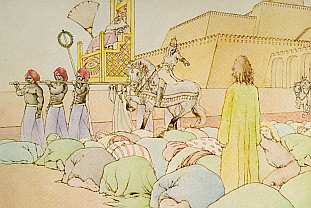Making dinner this evening, I opened up my favorite olive oil spread and realized that it was now whipped.
At some point, a group locked away in a corporate office park somewhere, figured consumers would love the new, improved, more spreadable spread. They’d worked hard to perfect this latest incarnation of the product, and were proud of the results.
Here’s how I saw their triumph: same size container, now with just more air.
Do I truly believe that the manufacturers of what used to be my favorite spread slaved night and day to better the product that I now held in my hand? That engineers worked feverishly to improve the silky smoothness? That marketing convened panel after panel to test all their hard work?
Nope.
Here’s what the fly on the wall of some mucky-muck’s office heard:
Mucky-Muck: “Rodney, we’ve got PPP.”
Rodney: “Yeah, ‘price point pressure.’ Engineering’s on it.”
Mucky-Muck: “The usual?”
Rodney: “They blow some nitrogen in and we’re golden, boss.”
Mucky-Muck: “Make it so, Number One.”
And thus is born yet another compromise.
Now you can contend I’m just a spoiled American consumer griping about non-dairy spreads. You’d be right, of course. No points for stating the obvious.
But in a much deeper way, I’m not upset about the spread. I’m upset about what it says about us.
Somewhere, the people behind the air-laden spread are going home to their wives and kids having never once considered that they sold a little piece of their soul that afternoon. Now repeat that same tiny moral death a million times over in America today. Little concessions to the lowest common denominator, to the cheap, to the compromise.
What’s truly sad is that not a person reading this today is immune. Not me and not you. We all get mired in the “Oh well, no one will notice” shtick until we don’t feel the twinge of guilt anymore. It’s all in a day’s work, and the day’s work counts more than anything else, right? Keep your nose clean, even if no one’s ever is.
I think these concessions are what’s wrong with our country.
Somewhere, someplace, sometime, it stopped being about principles. It stopped being about a God outside of us. Instead, it became the little deaths each of us suffers when we compromise on things that are dear to the heart of God. Those little deaths that no longer hurt because repetition numbed the sting.
Instead, it became the little deaths each of us suffers when we compromise on things that are dear to the heart of God. Those little deaths that no longer hurt because repetition numbed the sting.
A person doesn’t get a hard heart overnight. Yes, the raw materials for one lurk within all of us. No, a hard heart comes from compromising day in and day out on those tiny decisions that eaither bring us nearer to God or separate us from Him.
I honestly believe that people used to be more thoughtful when faced with compromise. I’m not necessarily saying that the compromise never occurred, only that we today think so little on matters of importance. In many ways our past compromise renders us incapable of even understanding what is important and what is inconsequential. The trite and lightweight takes precedent over considering what might destroy a future generation.
“The shareholders are hungry for a better quarter next quarter. If it means we burn the building down to make our numbers, then let’s do it.” Such a CEO would not last long in a rational world, but I suspect ours instead waits with baited breath from said CEO and his “I Did It My Way!” book, I Burned Down the Company and Made Everyone a Mint. Just don’t read the final chapter wherein the same CEO asks, “Hey, where did my yak bladder leather chair go?”
Are we operating like this in the Church? In what ways? And how do we stop the compromise when compromise is what we have become?
Because we can’t keep pumping air into the spread because one day someone’s going to open the container and find nothing but air.

 If we’re increasingly a nation of people on psychoactive medication, should we be surprised? Isn’t there enough pain within ten miles of our homes to last us a lifetime? What then do we do when we hear an orphanage was buried under a mudslide in Ecuador or a bus full of nuns holding babies in their arms went off a cliff in Singapore?
If we’re increasingly a nation of people on psychoactive medication, should we be surprised? Isn’t there enough pain within ten miles of our homes to last us a lifetime? What then do we do when we hear an orphanage was buried under a mudslide in Ecuador or a bus full of nuns holding babies in their arms went off a cliff in Singapore? He chose superb violin works unperformable by the less skilled. He played masterfully for the commuters.
He chose superb violin works unperformable by the less skilled. He played masterfully for the commuters.